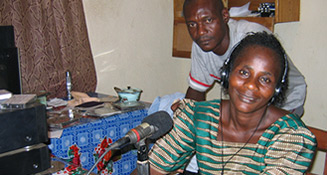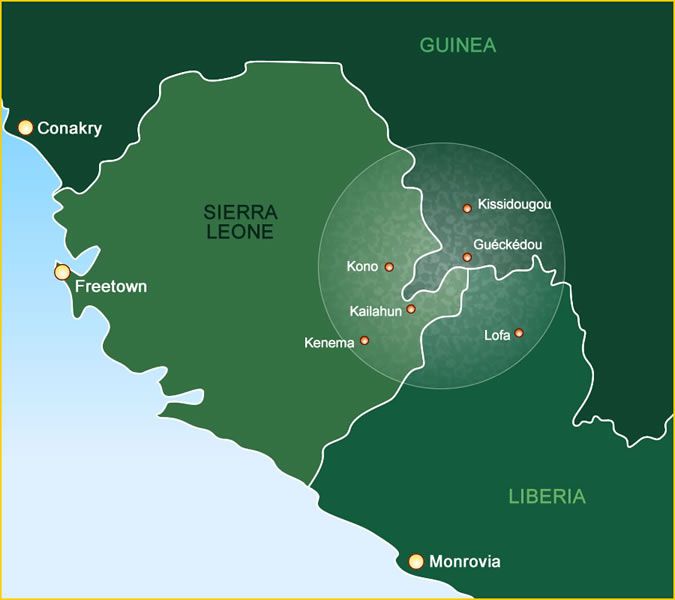 Version Française
Version Française
|
|
 |
|
Mano River Union Grantmaking rationaleThe Mano River border region between Guinea, Liberia and Sierra Leone is a culturally distinct area that is the home of Kissi and Mende people living in all three countries. Despite the imposition of national boundaries by European colonial rulers and a history of territorial claims, the Kissi and Mende people have succeeded in maintaining their social and economic identity. Rich in forest and fertile soil, the land in the border region has supported farming among closely knit communities for hundreds of years. At the same time, the area has been subject to political and economic domination, with subsequent high levels of poverty and lack of democratic governance. Its wealth of natural resources and minerals, in particular diamonds, has made it vulnerable to invading forces seeking control of the region. In the 1980s and 1990s, rebels backed by Liberia’s Charles Taylor brought devastating conflict to the region, with over one million people killed, another three million displaced, over 20,000 children conscripted as soldiers, and rape of numerous women as a purposeful weapon of war. The border areas between the three countries were at the center of the conflict, resulting in the destruction of village life, local resources and infrastructure. As fragile peace has been restored, women and their children are returning to their villages, carrying with them new ideas and perspectives from life in the city and the refugee camps. Many of them have lost everything – family, homes, the means of agricultural production, peace of mind – and have to re-establish their lives with little or no access to the post-conflict funding that has been made available to government and non-governmental organizations. Sierra Leone and Liberia have both witnessed political gains for women in recent years, including Gender Bills that provide a new legal framework for addressing gender-based violence, inheritance rights and forced marriage. This is important to rural women, who face ongoing violence and marginalization after 20 years of war. In addition, the governments of both countries are committed to food security, supporting smallholder farmers, especially women, and increased agricultural production. New Field has learnt that grants made directly to rural women’s groups in the border regions can greatly enhance their leadership and impact to establish peace, re-build family and community life, reduce female labor, and increase food production.
|
